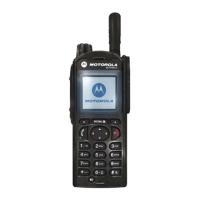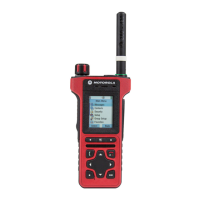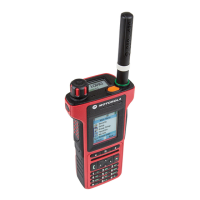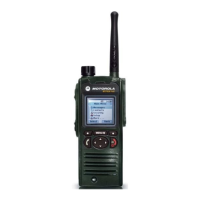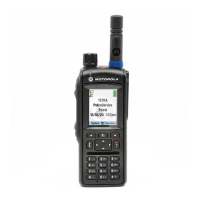2-28 Services and Feature Description
6866588D21-D Chapter 2 - MTP850 Ex/MTP810 Ex Product Information Manual March 2009
9 Packet Data (TMO)
The terminal provides, in TMO Mode, a TETRA bearer service for applications that use the IP
protocol, as described in the TETRA standard [Ref 1] clause 28, and the Packet Data TIP [Ref 13].
External applications will be able to use this service by connecting via the PEI interface, as
described in Paragraph 14 "PEI Characteristics".
9.1 General
The terminal supports TETRA standard multi slot packet data using the IP network layer protocol
[Ref 17] via PPP [Ref 18], and TETRA SNDCP protocol as defined in [Ref 1], clause 28.
An IP connection is established between TE2 and MT2, allowing external applications to
communicate with TE2 using predefined IP addresses.
Note: This will be referred to as the ’local link’. The link established between the terminal and the
SwMI will be referred to as the ’wide link’. When a wide link has been established, the
terminal will be considered to be in Wide Mode.
Packet data applications reside internally, over UDP, or in an externally connected device connected
via an 8-wire RS232 data port in the terminal. Communication to the external terminal are initialized
using AT commands as defined in the TETRA PEI standard [Ref 4]. Once the connection is
established, the external application may request PPP mode, and will then operate in PPP mode
until the data connection is terminated.
9.2 Connectivity
The system provides point to point IP connectivity, which means that the following datagram
exchanges are possible:
• Terminal <-> External Equipment (TE2) - PC and so forth.
• External Equipment (TE2) <-> Network (via Terminal)
9.3 Packet Data Terminal Interface
The terminal supports only IP version 4 packets.
The terminal routes datagrams independent of the protocol sitting on top of IP.
The terminal supports an MTU of 1500 bytes.
The terminal provides a best effort delivery service. However, if delivery fails, the originating user
application will be informed by sending back to TE2 an ICMP message, if possible.
9.4 Voice + Data Feature Support
The terminal is capable of alternating voice and packet data service, but voice and data in parallel is
not supported. According to [Ref 1], this corresponds to Packet Data Type B - IP dual mode. If the
SwMI rejects the context activation due to ’PD MS type not supported’, the terminal shall re initiate
context activation indicating that it supports ’Type C’ (This is to accommodate legacy SwMIs that
use the older definition of these types).
The terminal supports transmission and receipt of SDS on the packet data channel. Thus these
services may be conducted in parallel.
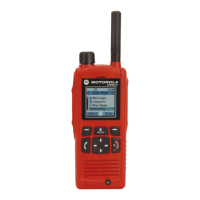
